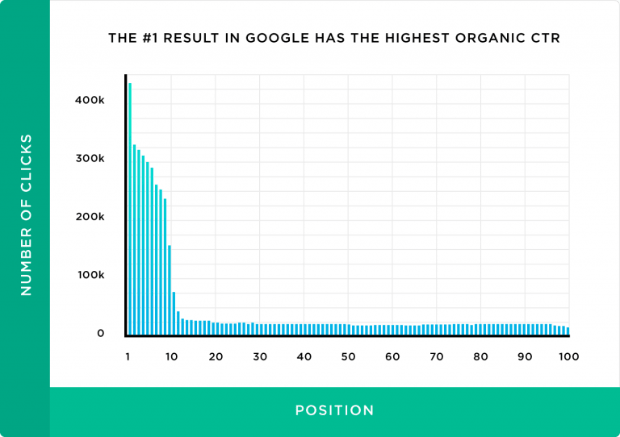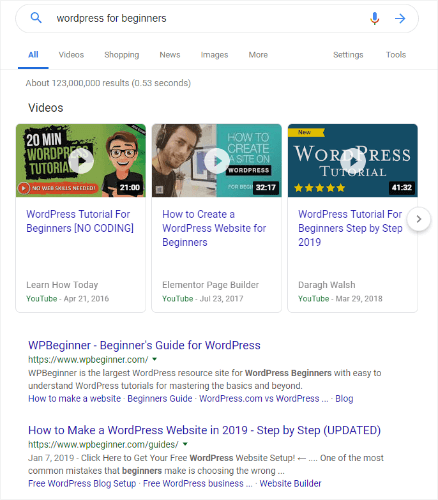SEO requirements keep changing, and it can be hard to keep up with the latest developments. But if you want your Google rankings to go from unseen to the top of the list, you have to be in the know.
Well-optimized sites get more and more traffic over time, and that means more leads and sales. Without SEO, searchers won’t be able to find your site, and all your hard work will be for nothing.

In this guide, we’re going to answer the question “what does SEO mean” and share the essential SEO ranking factors you need to dominate search results.
By the end of this post, you’ll have a well-optimized site that brings you more business.
Exclusive Bonus: Download the SEO Ranking Factors Cheat Sheet to boost your search engine rankings quickly.
We’ve created this handy table of contents if you want to skip ahead to the SEO ranking factors that are most interesting to you:
What Are the Most Important SEO Ranking Factors?
- A Secure and Accessible Website
- Page Speed (Including Mobile Page Speed)
- Mobile Friendliness
- Domain Age, URL, and Authority
- Optimized Content
- Technical SEO
- User Experience (RankBrain)
- Links
- Social Signals
- Real Business Information
Recommended Resource: Need more website traffic? Learn how to rank #1 on Google with our Ultimate Guide to SEO in 2020.
At the very end of this article, we’re going to finally answer the question that plagues most beginner SEO learners: which is more important, pleasing Google or pleasing my audience?
Before we get into the details of each ranking factor, let’s take a quick look at the basics of how search engine rankings work.
Understanding SEO, or “How Do I Rank Higher on Google?”
Many people wonder how Google rankings work. So before we get into the actual search engine ranking factors, let’s get started by answering some of the basic questions most people have about SEO.
What Is “Ranking” in SEO?
As you may know, SEO stands for search engine optimization, which simply means making the web pages more likely to get ranked on a search engine. But let’s be honest: at this point, that really just means Google.
And how exactly does that work? Let’s break it down.
In SEO, ranking refers to your content’s position on the search engine results pages (SERPs). A #1 ranking means that when people search for a particular term, your web page is the first result (apart from promoted results, featured snippets, and answer boxes, which we’ll talk about later in this guide).
Appearing in the top 3 results is excellent because your click-through rates skyrocket. According to research from Safari SEO in Brisbane, the #1 position in Google enjoys more than 45% of all organic clicks. The closer you get to #1 the more clicks you can expect, as shown in the image provided by Backlinko below:

Appearing on the first page at all, within the top 10 results, is also useful. That’s because 95% of people never make it past the first page.
Hence the famous joke in the Google SEO world: where’s the best place to hide a dead body?
On page 2 of Google.
What Does Google Look for in SEO?
Google’s stated purpose is to “organize the world’s information and make it universally accessible and useful.” Delivering relevant search results is a huge part of that. Here’s how they work:

First, Google’s search bots (pieces of automated software called “spiders”) crawl the web. Sounds creepy, we know. But all that means is they visit web pages.
Second, they add correctly optimized and crawlable pages to Google’s index and catalog them.
Third, when people search Google, it shows what it thinks are the most relevant results based on the search terms they enter (out of the trillions of pages in Google’s index).
Google has various and deeply complex algorithms to decide which content gets displayed and in which order. But we’ll get into all that fun stuff later.
Once your page lands on the SERP, though, you have to rely on your page titles and meta descriptions to get searchers to click your link and visit your site. Submitting a guest post technology can also help you rank your keyword on Google.
How Do Google Search Rankings Work?
When people want to find information, they type or say words related to what they’re looking for. Those are called keywords, and we’ll look at those in the content optimization section of this guide.
But keeping your website ranking on Google isn’t just about making the most out of competitive keywords. It’s also about the quality of information.
According to Google’s own search quality ratings, when it indexes the main content of each page, it checks factors like:
- Purpose of the page
- Content quality and amount
- Website info and info about the content creator
- Website reputation and content creator reputation
- User interaction with the page (time on page, bounce rates, and so on)
- Expertise, authority, and trustworthiness (E-A-T)
In just a moment, we’re going to explore that last one (E-A-T) in more detail because it’s become very important.
For now, it’s enough to know that all the factors listed above go into Google’s algorithm and help to determine SEO ranking.
Based on the rating guidelines above, Google shows searchers the most relevant, high-quality results related to what they’re looking for. The most relevant are shown first, with the rest shown over successive pages.

One of the goals of addressing SEO ranking factors is to let Google know when your pages on your site are relevant to particular search queries, so people will click the links and visit your site.
Before getting into two different types of SEO, let’s explore the concept of expertise, authority, and trustworthiness in greater detail.
